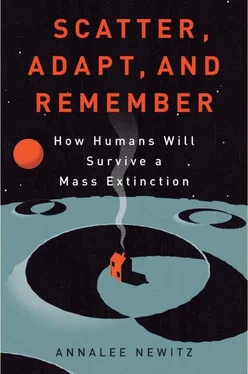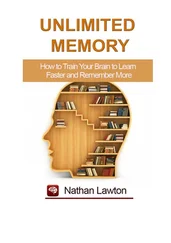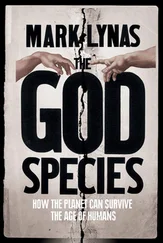And then there were those who had no access to the black market at all. On some islands, there was no way, physically, to sneak past the blockades and get to people selling food. On Syros, Mykonos and Chios, for example, people had to depend entirely on the food they produced to eat. And there simply wasn’t enough of it. The mortality patterns Hionidou found during her research flew in the face of the traditional idea that death from starvation is rare. She pored over records from the time, amazed to discover that accounts from both the Axis side and the Greek side matched up. “Greek doctors were reporting the cause of death as starvation, and some could argue that they had good reason to report starvation to blame the occupying forces,” she said. “But the occupying forces produce documents talking about starvation, too. They don’t try to cover it up by saying it’s disease. They’re not denying it at all.”
The only way that people survived these outbreaks of famine was to hold out until 1942, when the blockade was loosened up and food aid reached the Greek people. Some managed to escape the country into Hungary, while others got rich on the black market. But the artificial barriers that the occupation erected between people did more to starve them than any failed crop ever could. For Hionidou the lesson of the Great Famine in Greece is stark. When I asked her how a famine is stopped, she said firmly, “I think it’s political will.”
Nothing could underscore her assertion more than the greatest famine of the twentieth century, which ripped China apart just a little over a decade after World War II came to an end.
The Great Leap Forward That Sets Us Back
It started as a crazy dream based on the urge to transform the world. Mao Zedong, chairman of the People’s Republic of China, wanted to secure his political power in the party and turn China into an industrial powerhouse that could rival Britain. He’d grown up on the utopian promises of Marxism, and as an adult revolutionary leader was awed by the massive engineering projects of the Soviet Union. So when Mao informed his fellow Communist leaders at a 1957 meeting in Moscow that China would surpass Britain in the production of basic goods like grain and steel, he drew up a plan that sounded like something out of science fiction. Under the Great Leap Forward, he said, the Chinese people would turn their prodigious energies to a massive geoengineering project—damming up some of the country’s greatest rivers, halting deadly floods, and creating enough stored water to irrigate even the most arid regions in the mountains. Unfortunately, the plan turned out to be more fiction than science. Mao refused to listen to the advice of engineers, and pushed local party leaders to harness every citizen’s energies to dig dams that failed and divert rivers in ways that didn’t irrigate the soil. Worst of all, these projects prevented farmers from doing crucial labor on farms.
In 1958 and 1959, as Mao moved into the next phases of the Great Leap Forward, he demanded that each province meet fantastically high quotas on agricultural and steel output. According to regional records uncovered recently by the University of Hong Kong history professor Frank Dikötter, this was when the famine began to claim millions of lives—eventually killing as many as 45 million people. People died as a result of two policies: dispossession and fruitless labor. First, the government created vast work collectives by confiscating all private property, dispossessing people of their food stores, homes, and other belongings. Then local party representatives forced the understandably reluctant members of these new collectives to engage in unscientific, misguided experimental agricultural methods and steel manufacture. Farmers were told to plant rice seeds very close together, extremely deep in the soil, because it was considered a scientific method of producing a higher-yield crop. Meanwhile, to meet steel quotas and avoid punishment, people took to melting down farm equipment and anything else they could. Needless to say, the experimental farming techniques left the collectives with little food, and the steel production often left them more impoverished than ever.
Though China wasn’t at war, Mao borrowed the language of militarization to propagandize on behalf of the policies that were starving his people. China’s Great Leap Forward spawned terms like “the People’s Army,” which Mao used to characterize the displaced masses that party leaders deployed to work on China’s industrialization projects. Dikötter suggests that Mao favored terms like this because being in a state of war—if only a metaphoric one—would inspire people to sacrifice even more for the good of the country. It’s easy to see similarities between this strategy and the situation in occupied Greece. In both cases, war was used to justify abuses that led to millions of deaths.
China’s Great Famine was the worst famine of the twentieth century, and it was entirely manufactured by human political choices, which in turn affected land use. Dikötter calls the famine a mass murder, while the Chinese government considers it to be the result of tragically misguided policies. Regardless, it’s clear that the worst famines in recent history are cultural disasters rather than natural ones.
Survivors of the Great Famine included people who were willing to bend the political rules that Mao and his representatives had imposed on them. They secreted away foods that were supposed to go to the communes, engaged in illegal forms of trade, and, in a few cases, formed armed mobs and robbed trains, communes, and other villages. It wasn’t until 1961 that Mao acknowledged the desperate conditions in some provinces and called off the programs of the Great Leap Forward. When people were allowed to live in more permanent homes and return to tried-and-true methods of farming, the famine slowly abated.
Are We Going to Kill Ourselves?
Stories of recent famines raise the same question that stories of war always do: Are we humans going to exterminate ourselves more efficiently than a megavolcano ever could? It’s undeniable that one of the greatest threats we face is ourselves. Though famine has historically been a less efficient killer than other disasters like pandemics, and our systems for dealing with it have improved immensely over time, our survival is still at risk from malnutrition caused by environmental change and what demographer Hionidou called political will.
Evan Fraser’s predictions about environmental change in North America’s breadbaskets are already being borne out by the dire drought conditions that struck in the summer of 2012. Many farmers in Africa have suffered similar droughts for decades because they depend entirely on rainfall rather than irrigation systems.
Some of the environmental changes we’re witnessing in the grain baskets of Africa and North America are cyclical changes that have nothing to do with humans’ use of fossil fuels. But if the Intergovernmental Panel on Climate Change’s recent models of rising global temperatures from carbon emissions turn out to be accurate, we’ll soon be dealing with cyclical drought conditions, exacerbated by the heat humans are adding to the party. Many regions will suffer the same problems that farmers face in Africa every season, when drought can wreck an entire region’s hope for food and incomes. It’s very possible that our dreams for a global society in an industrialized world will have the unintended consequence of pushing most people on Earth into lives of poverty, hunger, and disease.
Leaving aside questions of environmental change, we’re still contemplating an exceptionally harsh future. As UC Berkeley economics professor Brad DeLong put it to me:
Читать дальше






![Аннали Ньюиц - Автономность [litres]](/books/424681/annali-nyuic-avtonomnost-litres-thumb.webp)





